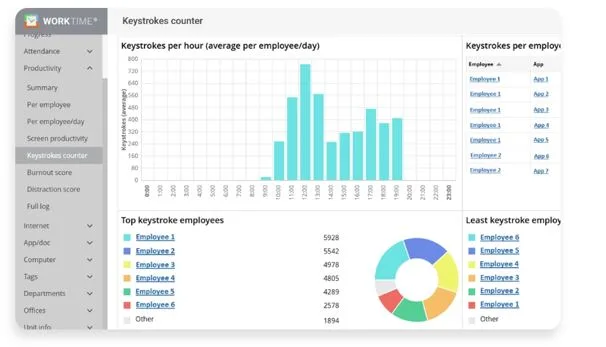The Rise of Specialist Outsourcing in Finance, Marketing, and Operations
Outsourcing used to be about clearing the desk of tasks that felt too big or too messy to keep in-house. Today, it’s looking a lot more like a partnership built around expertise that’s hard to find, harder to keep, and nearly impossible to scale without the right support. In sectors like finance, marketing, and operations, the trend isn’t just to outsource — it’s to outsource with precision. Businesses are seeking out specialists who know the finer points of a single niche, and they’re willing to invest in those relationships for the value they bring, not just the convenience.
Targeted Expertise Over Broad Coverage
The old model of handing over a broad slice of work to a generalist firm is losing ground. Companies have realized that if you’re going to outsource your marketing, you don’t just want an agency that can handle ads, you want the team that has scaled dozens of direct-to-consumer skincare brands on social platforms. If your operations need fine-tuning, you’re looking for a partner who has mapped complex supply chains in your exact industry, not someone who just claims they can “figure it out.” This sharper lens is leading to more productive engagements and fewer missed opportunities. It’s also creating a new layer of competitive edge, because while a competitor might be slogging through trial-and-error, you’ve got the people who’ve solved that same problem fifty times before.
While cost savings still play a role, they’re no longer the sole driver. In fact, there’s a growing acceptance that the right specialist may not be the cheapest — and that’s often the point. Businesses have learned that outsourcing saves money when it’s done thoughtfully, but the real payoff is in gaining capabilities they couldn’t develop internally at the same speed or scale. This mindset is shifting outsourcing from a stopgap measure into a deliberate growth strategy.
Finance Outsourcing Steps Into The Spotlight
Among all the specialist categories gaining traction, finance is perhaps the most surprising. It’s one thing to outsource payroll or bookkeeping, but companies are now entrusting high-level financial strategy to external experts. The surge in interim CFO services is part of this evolution, giving organizations access to seasoned leadership without a long-term hire. For a growth-stage startup, that might mean the difference between securing funding with a well-structured pitch or watching an opportunity slip away. For established companies, it could involve navigating a complex merger with steady hands on the tiller.
The appeal here isn’t just about plugging a skills gap — it’s about getting strategic perspective from someone who’s not entrenched in the company’s internal politics or past decisions. These external finance leaders bring fresh eyes to capital allocation, risk management, and forecasting, and because they’re specialists, they often spot opportunities that a more generalized approach might overlook. The demand has become so strong that boutique firms dedicated solely to high-level finance outsourcing are now competing with large consultancies for market share.
Marketing’s Move Toward Micro-Specialization
Marketing was one of the earliest adopters of outsourcing, but it’s undergoing its own quiet revolution. The one-stop-shop agencies are still out there, but they’re being joined — and often outperformed — by niche players with deep focus. A brand looking to dominate TikTok isn’t just hiring a social media manager anymore; it’s contracting with a boutique that lives and breathes short-form video for that exact platform. A company preparing for a product launch in Japan might hire a micro-agency that understands cultural nuance, consumer behavior, and regulatory requirements in that market alone.
This kind of micro-specialization delivers more than just technical expertise. It creates alignment between the outsourced team’s daily work and the client’s specific growth goals. There’s less wasted motion, fewer half-baked campaigns, and a stronger connection between the dollars spent and the results achieved. The transparency this allows is also changing how contracts are structured — performance-based agreements are on the rise, and that’s a shift both sides often welcome.
Operations Outsourcing Finds Its Niche
Operations has always been a complex and often underappreciated part of running a business. It’s not glamorous work, but it’s the backbone of efficiency. Specialist outsourcing here is gaining ground because operational challenges are rarely one-size-fits-all. Supply chain disruptions in manufacturing look nothing like the workflow bottlenecks in a software company. That’s why the new breed of operations outsourcing focuses on highly specific environments, from medical device compliance management to last-mile delivery optimization for urban retail.
What makes this evolution particularly powerful is that operations specialists tend to be problem solvers by nature. They’re not coming in with a template; they’re coming in to diagnose, adapt, and refine. They often work shoulder-to-shoulder with internal teams, blending into the company’s own processes while still bringing the outsider’s advantage of perspective. And because they’ve seen dozens of similar scenarios play out, they can forecast potential pitfalls before they cost time or money.
A Future Built on Precision Partnerships
Specialist outsourcing isn’t a passing trend; it’s a reflection of where business is headed. As industries become more complex, the idea of hiring someone “good enough” to handle a wide range of tasks is giving way to a mindset that prioritizes top-tier expertise in narrow lanes. For many companies, these partnerships are not just solving problems — they’re shaping strategy. The businesses that embrace this approach aren’t just outsourcing work; they’re building a network of trusted experts who expand their capabilities in ways no single in-house team could match.
The shift toward specialist outsourcing speaks to a broader truth about how companies grow today. Access to the right minds, in the right place, at the right time, can be as transformative as any major investment. When businesses choose partners who not only understand their niche but excel in it, they’re not just filling gaps — they’re building momentum. The smartest players in this space already know that the future belongs to those who think bigger about what outsourcing can do, and act faster to put that thinking into motion.





